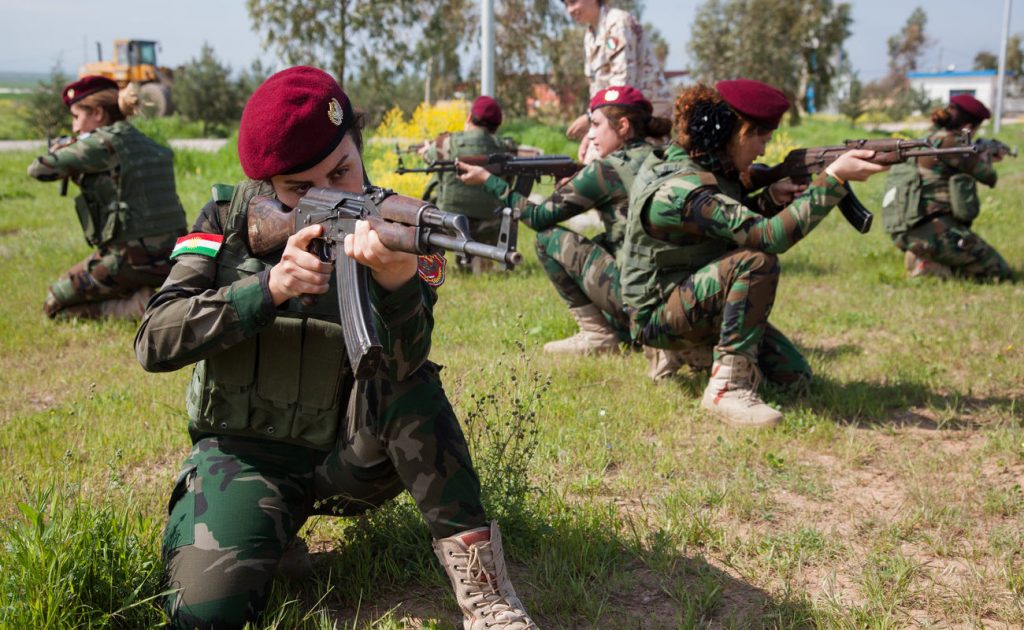Opinion: Controversy with potential withdrawal of troops in Syria

With eight years and over 15 countries involved in the Syrian civil war, an estimated 2,000 U.S. troops currently deployed may finally be facing a withdrawal from the country.
When it comes to American military presence in foreign nations, the first priority of U.S. leaders must be the lives of their own soldiers. While America can and should play a role in international politics, and sometimes that does require a military force, using American military forces in the field must be the last resort.
After U.S. President Donald Trump and Turkish President Recep Tayyip Erdoğan spoke over the phone Dec. 14, Trump announced Dec. 19 that the U.S. would be withdrawing all troops from Syria. According to the New York Post, Trump’s officials then rushed to create a plan for withdrawal from the Middle Eastern country. At the same time, others in Trump’s administration attempted to convince the president to slow his time line or reverse his decision.
The Pentagon was thrown into an even greater frenzy when Secretary of Defense James Mattis announced his resignation. He pledged to stay until the end of February. In his letter of resignation, Mattis said his reason for stepping down was because Trump has “the right to have a secretary of defense whose views are better aligned” with Trump’s view on Syria and “other subjects.”
While not all of his White House staff agrees, the president does have reasons to believe that victory in Syria is secured.
The Pentagon estimates that 90 percent of the land once controlled by the Islamic State is now under the control of the coalition led by the U.S. government. During his call with Trump, Erdoğan claimed the Islamic State has been 99 percent defeated.
However, The Washington Post and the New York Times are comparing Trump’s withdrawal to the withdrawal initiated by President Barack Obama, who began pulling out troops but was forced to send them back in 2014 due to an Islamic State reemergence.
During that conflict, the government believed that the troops stationed in the Middle East could be safely withdrawn, but NPR claims that though al Qaeda was eliminated, the swift withdrawal of U.S. troops created a power vacuum that allowed ISIS to obtain power. Though not entirely anyone’s fault, some claim that if U.S. troops had remained in Iraq, they could have slowed the ISIS expansion.
If the U.S. does withdraw all troops from Syria, can stability be maintained in the region?

BATTLE TRAINING — For years, American forces have been involved in training and preparing the natural Syrian forces to engage ISIS and other threats in the hostile regions of the country.
While stability through diplomatic actions would be ideal, the problem of the Islamic State group remains. Classified as a terrorist organization by the U.S. government, it would be significantly harder to get this group to sit down and have a chat with anyone, let alone an international body of leaders.
The United Nations envoy for Syria still believes that diplomacy is the way to go. Staffan de Mistura believes that the risking of lives of soldiers should be a last resort.
“Either we are trying to find a political way to end this war and move to a postwar political scenario, or we will see this war reach new levels or horrors,” de Mistura told the New York Times.
While, it does seem like there should be a better way to secure peace than constant fighting, this should be true specifically regarding the countries that are currently involved in the Syrian conflict. The countries involved should be able to “slug it out” over a diplomatic table, not an abroad battleground.
The controversy surrounding Trump’s decision remains just that, a controversy. At the end of the day, while the value of learning from past mistakes can never be underestimated, neither can be the value of human lives.
